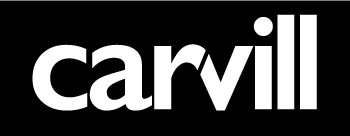Do you know the keywords for your business?
Why you need to know them and how to find them…
Whilst that’s all been very interesting – one key thing that keeps cropping up is the importance of ‘key words’.

Online… keywords are key
Typically we associate keywords with putting together an online ad campaign. Google Adwords has a keyword tool which suggests additional keywords – and the Google traffic estimator resource enables you to review how much traffic your prospective keywords are likely to get.
All very useful – however, online – keywords run through pretty much everything we do. If you like, they’re (as a training colleague of mine, David Taylor @2010mediauk - described it), the DNA of our online presence.
Where do we use keywords
Keywords aren’t just for ads, ideally, we need to be thinking and using our keywords in a tactical way via a number of mediums;
- Profile pages (Twitter, Linked in, Facebook, About me, YouTube etc).
- Signatures (emails, forums).
- Twitter username (@keyword – rather than @name)
- Websites
- Blog sign off
- Relevant content
- URLs (www.keyword.co.uk)
- Landing pages
- And of course… online ads
So, as we can see from the above – pretty much everywhere we want to be visible online, it makes sense to optimise our presence by using relevant keywords, which ultimately helps others to find us and filter through the noise.
How to find your keywords
There are a number of ways you can go about this. And here are a few to consider:
- Ask the audience
Very simple, but so few of us do it. Ask your customers, friends and family what words / phrases they would put into Google if they were looking for your services. A quick phone call or email asking this question can prove most illuminating.
- Google Analytics
Review the keywords people are using to find your site. I’m still amazed that siteowners haven’t embedded this necessary resource into their sites. It’s free, it’s simple to do – and it’s a must for understanding what’s happening with a site.
- Look at what you’ve got
To understand which keywords are valuable to you and your business – you really have to stand back and take a look at what you do – and, importantly, what problems you fix. Go through your website content, marketing flyers etc – anything that you have that describes your products and services – and look for the ‘key words’ – the main words which can describe your services / products in a fewer words as possible.
- Ask a stranger
Recently at one of the courses I presented I ran an exercise where we paired up delegates and gave them a minute each to do their ‘elevator pitch’ to one another. Each was then asked to write a list of keywords that they would use if they were searching for the other’s services. It was interesting to see that the siteowners had very different views of their own keywords than that of the newly acquainted stranger.
Simple exercise, well worth doing.
- Wonder Wheel
This is another search tool which you’ll find in Google. When in the main Google browser down the left hand side you’ll see a link stating ‘view more tools’ – and if you click that a link to Wonder Wheel will appear. This is a neat and relatively new Google search resource (launched late 2009 but not many know of it). It’s effectively a search resource which shows you a ‘wheel’ of related search terms. Very useful for keyword finding, particularly for developing optimised content. Here’s a link to Wonder Wheel explained for those of you that are interested…http://www.googlewonderwheel.com/
Of course, as with anything, these activities whilst they will enable you to find relevant keywords – understanding which ones actually work for your business is another matter.
If you set conversion goals then you can start to monitor which keywords best perform for you.
As search and social converge (and this trend is only likely to continue with Google’s commitment to real-time search) – then it makes sense to ensure your online presence is as optimised as possible.
Of course, as always, it’s still fundamentally important that your product and service ‘stands up’, your website is user friendly and offers what those searching for you expect to see – and that you ultimately remember that you are talking to human beings not robots. However, using the right and relevant keywords in a way that makes sense, will at least give you a better opportunity of being found.
@Michelle Carvill is owner and Marketing Director at Carvill Creative - a graphic design and digital marketing services agency based in Maidenhead, Berkshire. The agency covers all aspects of graphic design and marketing - covering social media marketing and social media training, user focused website planning and conversion focused website design.
